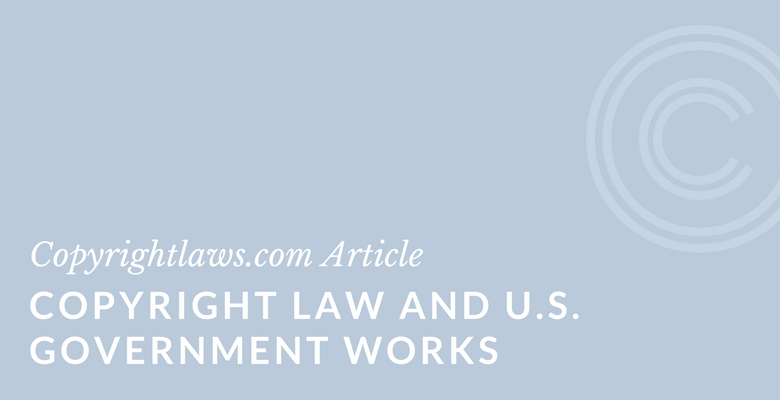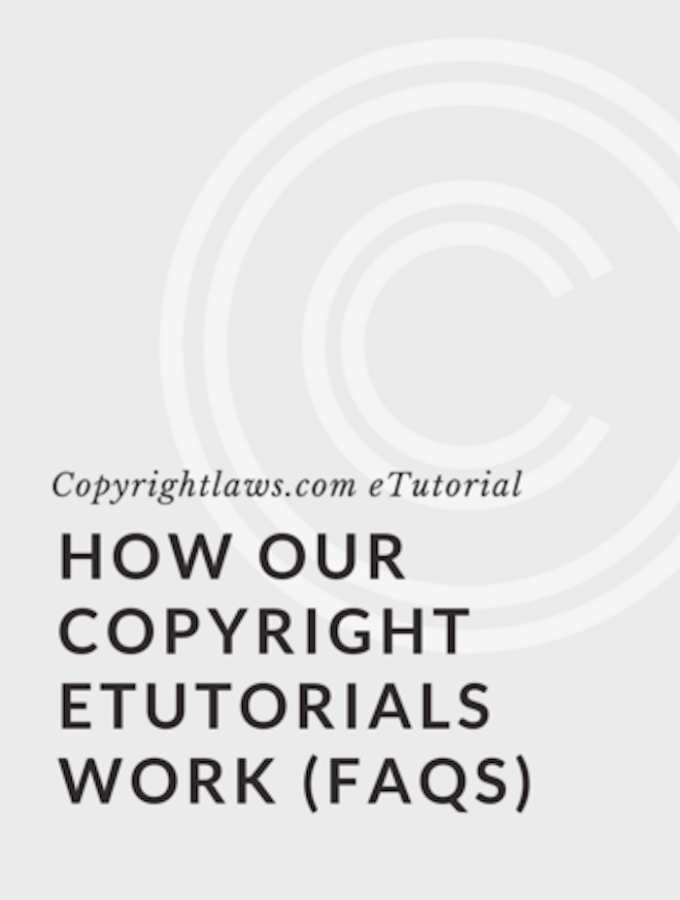Are all U.S. government works in the public domain?
It's a misconception that all U.S. government works (maps, brochures, reports, etc.) are in the public domain. In order to understand which U.S. government works are protected by copyright and which are not, you need to know three things.
- The general rule is that works created by federal government employees are in the public domain.
- However, not all government works are in the public domain (see details below).
- Within the U.S., you can freely use U.S. government publications and other works in the public domain. However, you may need permission to use works created by someone who's not a government employee.
Learn more about complying with U.S. copyright law.
U.S. Copyright Act
The U.S. Copyright Act clearly states that copyright protection in the U.S. is not available for any work of the federal government. The Act states:
105. Subject matter of copyright: United States Government works
Copyright protection under this title is not available for any work of the United States Government, but the United States Government is not precluded from receiving and holding copyrights transferred to it by assignment, bequest, or otherwise.
U.S. government works are in the public domain (i.e., not protected by the U.S. Copyright Act). You can freely use them (in a copyright sense) without obtaining permission or paying a copyright fee. You can even edit, adapt and republish these government works without permission.
Government Works: Not All Are in the Public Domain
Those physically present in the U.S. may use many U.S. government works without obtaining copyright permissions or paying copyright fees. Public domain works produced by the government include:
- Pamphlets
- Documents
- Maps
- Images
- Instructional videos
- Federal statutes
- Reports and studies
Always keep in mind, however, that this general rule pertaining to U.S. government works doesn't permit you to use all such works.
To be in the public domain, U.S. government works must be created by a federal government employee as part of their official duties. This excludes works created by contractors, freelancers and certain people who work with the U.S. government but aren't considered government employees for copyright purposes.
For example, a video filmed by a freelance videographer for a government publication is protected by copyright. The U.S. government may own the copyright in the video if the videographer has assigned the copyright to it. Read below for further information on when the U.S. government owns copyrights.
Situations Where U.S. Government Works Are Not in the Public Domain
Not all government works are freely available for use by the public. In some situations, the U.S. government does own copyright in works.
The U.S. government may obtain copyrights through an assignment, bequest or otherwise. For example, an independent contractor (e.g., a consultant, writer or artist) may transfer or assign copyright in a research paper or drawing to the government, which is then the copyright owner.
In these situations, the works aren't in the public domain. Therefore you need to obtain permission and pay a fee, if requested, prior to using them.
The fact that certain U.S. government works aren't protected by copyright doesn't require the government to make them publicly available without restriction. Federal laws and agency policies govern the public release of U.S. government information.
The U.S. government doesn't generally restrict the use or distribution of most types of its works. However, statutes such as the Freedom of Information Act (FOIA) provide the government with authority to restrict access for such purposes as national security and export control, and to files relating to personnel, medical and similar issues.
This can be a confusing area of copyright. Further guidance is provided in this January 2020 article by Bonnie Klein: Copyright Alert! Even U.S. Government Information May Be Protected by Copyright.
Works of Joint Authorship
If a government employee and an independent consultant (i.e., not a government employee) jointly create a work such as an e-book or research paper, there's an issue as to whether the government may co-own the copyright in that work with the independent contractor. In such a situation, the government may choose to obtain permission from the independent contractor to use and distribute the work. The government may go even further and obtain an assignment of copyright in the work from the independent consultant.
Government Employees Creating Works Outside Their Work Duties
Federal government employees have and retain copyright protection in their works in certain situations. For example, an employee who writes a novel in the evenings at home would own the copyright in it. An employee who develops a course based on knowledge attained at work would also likely be its copyright owner, unless its development were part of the employee's federal government work duties.
A job description setting out the duties of an employee may help determine the ownership of works related to their day job. Also, government employees pursuing interests beyond their employment might consider entering into a simple agreement with their employing government department. It could state something to the effect that:
- They're creating a work outside their job, and
- They're the owner of copyright in that work.
Putting this in writing prior to creation of the work provides clarity and helps both sides in any work situation. A written agreement is even more important now than ever with many employees working at home and blurring the lines between work and nonwork time and tasks performed during work and nonwork hours.
Looking to learn more about U.S. and global copyright and permissions issues from a practical perspective? See our comprehensive, interactive and hands-on Copyright Leadership Certificate course.
You may also enjoy our article A Simple Guide to U.S. Copyright Law.




